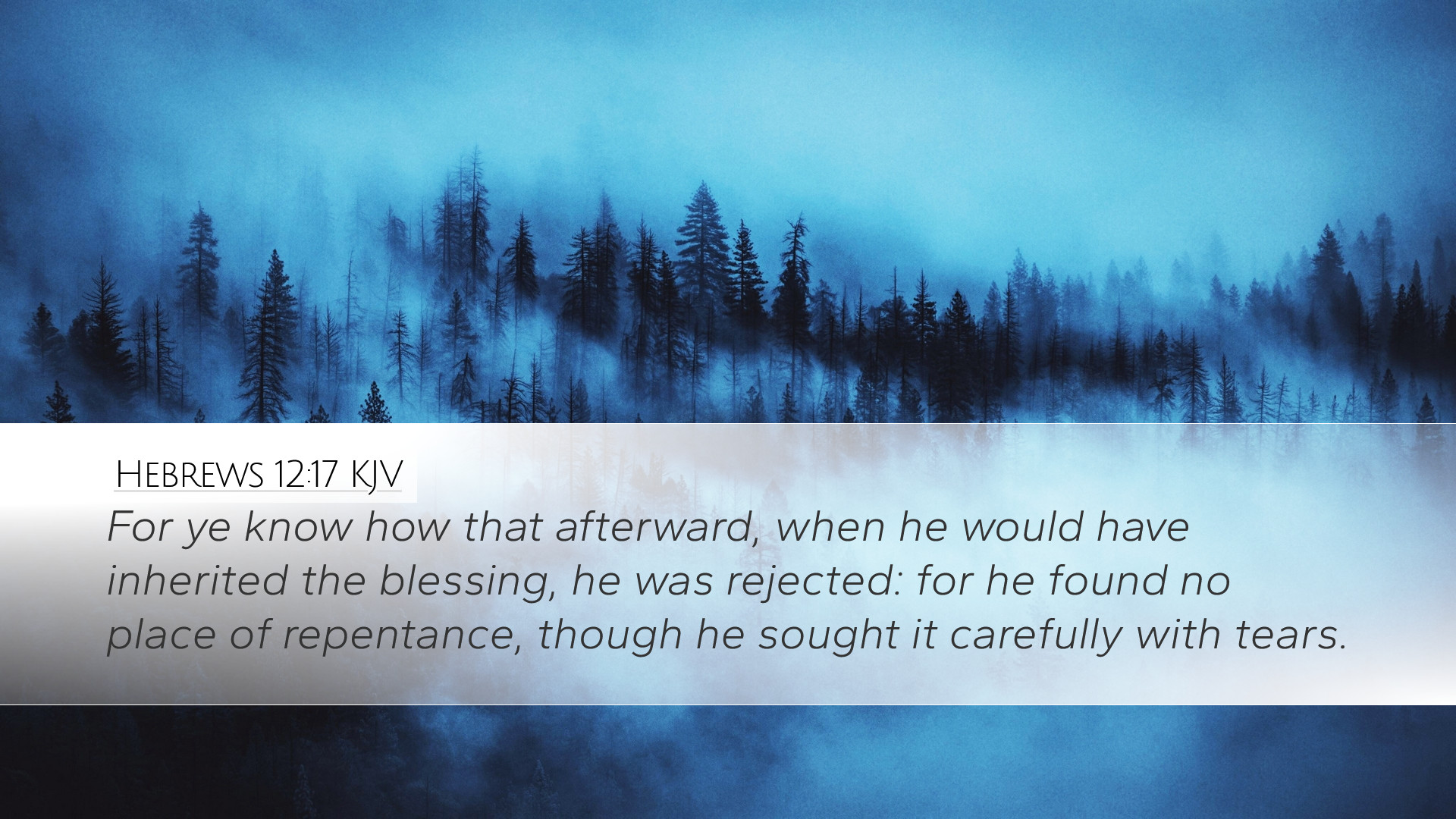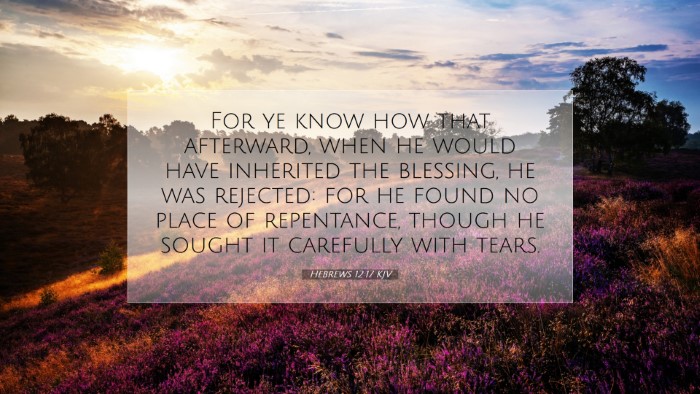Commentary on Hebrews 12:17
Bible Verse: "For you know that afterward, when he desired to inherit the blessing, he was rejected; for he found no place for repentance, though he sought it diligently with tears."
Introduction
This verse serves as a poignant reminder of the consequences of choices and the importance of valuing spiritual inheritance. The writer of Hebrews references Esau to illustrate a critical point about the nature of repentance and the irrevocable nature of some decisions.
Contextual Overview
Hebrews 12 is a chapter rich with exhortation and warning. The author encourages believers to run with perseverance the race marked out for them, looking unto Jesus, the author and finisher of their faith. In this context, Esau's story is used as a cautionary tale against spiritual apathy and the vital importance of cherishing one’s birthright.
Matthew Henry Commentary
Henry indicates that Esau's actions represent a profound foolishness—a selling of his birthright for immediate gratification. He suggests that this act symbolizes a broader attitude of carelessness toward the spiritual heritage that believers possess in Christ.
Furthermore, he emphasizes that Esau's regret came too late. His tears were not those of repentance but of remorse, as he could not regain what he had willingly forfeited. This distinction between true repentance and mere regret is crucial in understanding the nature of Esau’s failure.
Albert Barnes Commentary
Barnes expands on the notion that Esau sought the blessing with earnestness, yet found it ultimately unattainable. He posits that this illustrates God's sovereign will and the unalterable nature of certain blessings. Barnes writes that the passage serves to warn believers about the permanence of their choices regarding their spiritual inheritance.
He further elaborates on the significance of repentance in this context, stating that genuine repentance must accompany one's desire to return to God. Esau's tears, though sincere, were insufficient because they came after the irreversible loss of his blessing.
Adam Clarke Commentary
Clarke provides a unique insight into the emotional struggle of Esau. He highlights that Esau’s weeping was an expression of deep sorrow for what he lost, yet it lacked the transformative power that true repentance entails. Clarke suggests that one can grieve over the loss of a sacred blessing without having true repentance.
The passage, according to Clarke, serves as both a comfort and a warning. It comforts believers by affirming that God’s gifts and calling are irrevocable but warns against taking lightly the privileges one possesses in Christ.
Theological Implications
This verse raises critical theological discussions about the nature of repentance and the permanence of choices affecting one’s spiritual standing. It highlights that while God is merciful, there are dire consequences for casual disregard of one’s spiritual responsibilities.
The notion of seeking repentance but failing to achieve it reflects the serious reality of losing one’s opportunity for salvation due to willful negligence. Believers are thus called to remain vigilant and earnest in their faith, valuing what has been given to them.
Practical Applications
- Valuing Spiritual Heritage: Believers must recognize and cherish their spiritual inheritances, ensuring they prioritize their relationship with God above temporal desires.
- Understanding Repentance: It is essential to differentiate between mere regret and true repentance; the former may lead to sorrow, but only the latter leads to restoration.
- Warning Against Indifference: The story of Esau serves as a solemn reminder of the potential spiritual peril that comes from spiritual indifference and trivializing God's gifts.
Conclusion
Hebrews 12:17 serves as a sobering reminder to believers about the gravity of their spiritual choices. Commentaries from Matthew Henry, Albert Barnes, and Adam Clarke deepen our understanding of this verse, drawing significant lessons about the importance of valuing our birthright, the nature of true repentance, and the consequences of our actions. As pastors, students, theologians, and scholars engage with this text, may they find it to be a rich source of insight and exhortation in their spiritual journeys.


